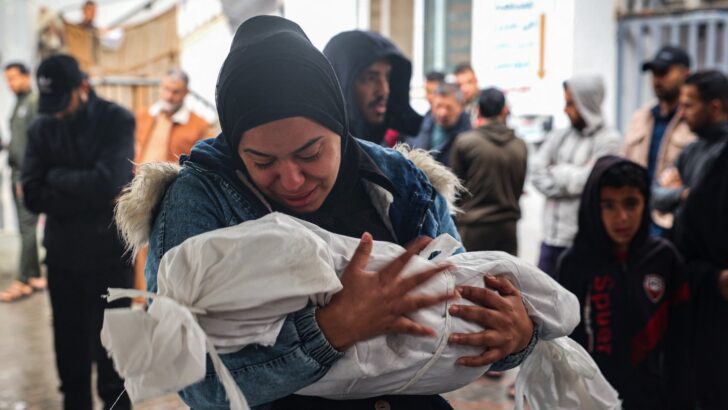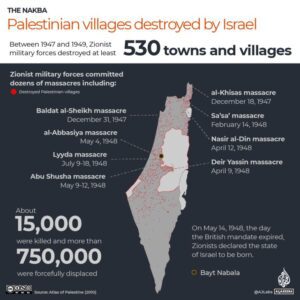of Justice
THE HAGUE
YEAR 2024
Public sitting held on Thursday 16 May 2024, at 3 p.m., at the Peace Palace, President Salam presiding,
in the case concerning Application of the Convention on the Prevention and Punishment of the Crime of Genocide in the Gaza Strip (South Africa v. Israel)
____________________
VERBATIM RECORD
___________________
4. Israel is escalating its attacks on Palestinians in Gaza, and in so doing is wilfully breaching the binding Orders of this Court. Israel similarly breaches the binding resolutions of the United Nations Security Council, erroneously believing from the lack of counter-measures by the international community that it is exempt from having to respect international law. This institutionalized impunity has led Israel to engage in this genocide, which has shocked the conscience of humanity.
5. South Africa is mindful that the present genocide operates in denial of the Palestinian people’s inalienable right to self-determination and collective right to return to their homes in Palestine. This genocide takes place within the context of the ongoing Nakba –– the 76th anniversary of which was celebrated yesterday –– the continued forced displacement of the Palestinian people,
on Page 12
the erasure of Palestinian presence in Palestine and replacement with colonial settlers –– a criminal process entrenched and maintained by 76 years of apartheid and 56 years of illegal belligerent occupation. Undoubtedly, the ongoing scenes of Palestinians being forced to repeatedly flee for their lives is not only reminiscent of the Nakba of 1948 –– it is a continuation of it.
6. Seven months ago, South Africa could not have imagined that Gaza would now be mostly wiped off the map. It could not foresee that every family, every neighbourhood, every class of students, every workplace, would be pulled apart, killed, maimed, displaced, malnourished or starved. South Africa had hoped — when we last appeared before this Court — to halt this genocidal process –– to preserve Palestine and its people. Instead, Israel’s genocide has continued apace and has just reached a new and horrific stage.
7. Israel has sought to hide its crimes through the weaponization of international humanitarian law. It pretends that the civilians it ruthlessly kills — through its 2,000-lb bombs, through its targeted airstrikes, through its artificial intelligence systems, through its executions — are “human shields”.
This whitewashing of Israel’s genocide misses the key and fundamental element –– that of the massive and still-mounting evidence of Israel’s genocidal intent –– documents and videos of Israeli parliamentarians and military leaders, calling for the destruction of the Palestinian people in Gaza, incitement by Israeli civil society and leading public Israeli figures, all collectively supporting the genocide and its continuation.
8. Israel continues to show utter contempt for Palestinian life, operating with impunity. South Africa has no other option than to, once again, seek protection in the halls of justice for the fundamental right of the Palestinian people to their existence.
9. Although this present application was triggered by the
unfolding horrific situation in Rafah, Israel’s genocidal onslaught across Gaza has intensified
over the past few days, also warranting the attention of this Court. With that, Mr President, I
respectfully wish to request you to invite Professor Vaughan Lowe to set out South Africa’s substantive
legal arguments. I thank you.... READ MORE https://www.icj-cij.org/sites/default/files/case-related/192/192-20240516-ora-01-00-bi.pdf
[AS
ALWAYS PLEASE GO TO THE LINK TO
READ GOOD ARTICLES (or quotes or watch videos) IN FULL: HELP
SHAPE ALGORITHMS (and
conversations) THAT EMPOWER
DECENCY, DIGNITY, JUSTICE &
PEACE... and hopefully
Palestine]












%20refused%20their%20right%20to%20return...%20and%20their%20right%20to%20live%20in%20peace%20free%20from%20religious%20bigotry%20and%20injustice.%20photo%20credits%20Red%20Cross%20ICRC%20&%20UNWRA%20historic%20archives.jpg)


